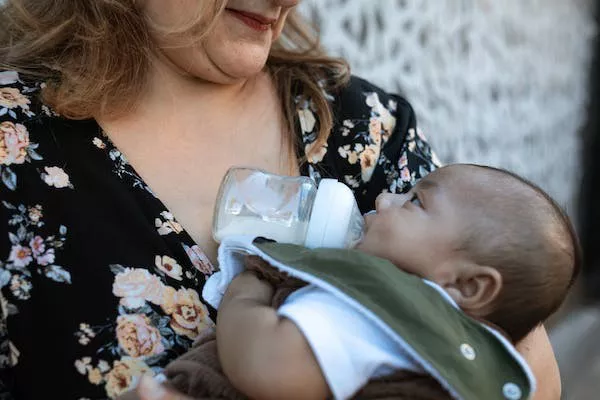When it comes to choosing the right bottle for your baby, many parents find themselves debating between glass bottles and plastic bottles. Both options have their advantages and considerations. In this comprehensive article, we will delve into the topic of glass bottles versus plastic bottles, examining factors such as safety, durability, environmental impact, ease of use, and more. By exploring these aspects, we aim to provide you with the necessary information to make an informed decision that suits your baby’s needs and your preferences.
-
Safety:
Glass Bottles: Glass is a non-toxic and non-porous material that does not contain harmful chemicals such as BPA (bisphenol A) or phthalates. Glass bottles are considered a safe option for feeding your baby as they do not leach chemicals into the contents, ensuring the purity and safety of the milk or formula.
Plastic Bottles: While plastic bottles have come a long way in terms of safety, it is important to choose bottles that are specifically labeled as BPA-free. BPA is a chemical that has been linked to potential health risks, especially when heated. Opting for BPA-free plastic bottles ensures a reduced risk of exposure to this compound. Additionally, some plastic bottles are made from alternative materials like polypropylene, which is considered safe for baby use.
-
Durability:
Glass Bottles: Glass bottles are known for their durability and longevity. They are less prone to scratches, discoloration, and wear and tear over time. Glass bottles can withstand high temperatures, making them suitable for sterilization methods such as boiling or steam sterilization.
Plastic Bottles: Plastic bottles, depending on the type of plastic used, can be susceptible to wear and tear. Over time, scratches can develop on the interior surface, providing a breeding ground for bacteria. While some plastic bottles are labeled as dishwasher-safe, they may deteriorate with repeated washings or exposure to high temperatures.
-
Environmental Impact:
Glass Bottles: Glass bottles are considered a more environmentally friendly option as they are reusable and recyclable. They can be used for multiple babies or repurposed for other purposes once your baby outgrows them. Glass is also a natural and sustainable material that does not contribute to plastic waste accumulation.
Plastic Bottles: Plastic bottles, on the other hand, contribute to the global plastic pollution crisis. While some plastic bottles can be recycled, many end up in landfills or oceans, where they take hundreds of years to decompose. Choosing plastic bottles made from recyclable materials and properly disposing of them can help reduce the environmental impact.
-
Heat Retention:
Glass Bottles: Glass has excellent heat retention properties, meaning it can keep liquids warmer for longer periods. This feature can be beneficial when you need to prepare a bottle in advance or when your baby prefers warm milk.
Plastic Bottles: Plastic bottles have lower heat retention compared to glass. They tend to cool down more quickly, which can be advantageous if your baby prefers cooler liquids or if you need to cool down a bottle rapidly.
-
Portability and Weight:
Glass Bottles: Glass bottles are generally heavier than plastic bottles, which can be a consideration when it comes to portability. The weight of glass bottles may make them less convenient for on-the-go situations or for parents with limited hand strength.
Plastic Bottles: Plastic bottles are lightweight and easy to carry, making them more convenient for travel or when you need to prepare bottles outside of the home. Their lightweight nature also makes them easier for babies to hold as they grow older.
-
Ease of Use:
Glass Bottles: Glass bottles require careful handling due to their breakable nature. They may shatter if dropped on a hard surface. However, many glass bottles come with protective sleeves or silicone covers to enhance their durability and provide a better grip.
Plastic Bottles: Plastic bottles are less prone to breakage, offering a level of convenience and peace of mind. They can withstand accidental drops or bumps without the risk of shattering.
Conclusion:
Choosing between glass bottles and plastic bottles ultimately depends on your priorities and preferences as a parent. Glass bottles offer safety, durability, and a reduced environmental impact, but they may be heavier and require careful handling. Plastic bottles are lightweight, convenient, and shatterproof, but they require selecting BPA-free options and contribute to plastic waste. Consider your baby’s needs, your lifestyle, and the factors outlined in this article to make an informed decision that aligns with your values and ensures your baby’s well-being. Remember, whichever option you choose, providing nourishment and love to your little one is what truly matters.


